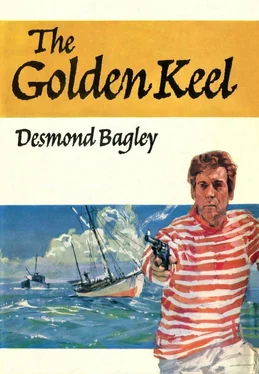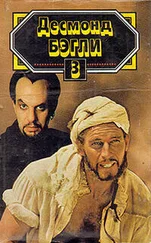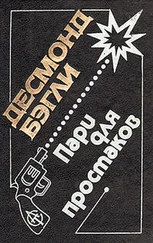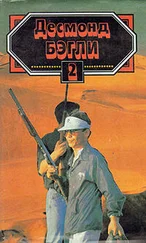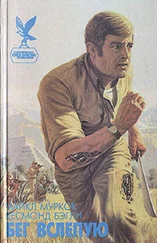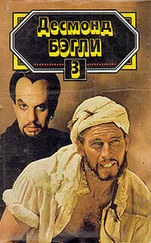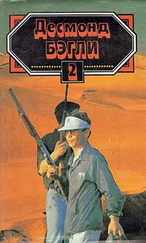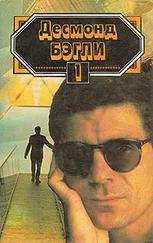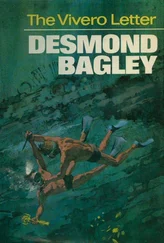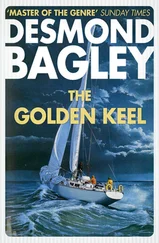Walker sighed. ‘Then we’re stuck here.’
Coertze grinned. ‘It is not too bad. At least we’ll get better food than we had in camp. The Count wants us to join his little lot — it seems he has some kind of skietkommando which holds quite a bit of territory and he’s collected men and weapons while he can. We might as well fight here as with the army — I’ve always fancied fighting a war my way.’
A plump woman brought in a steaming bowl of broth for Walker, and Coertze said, ‘Get outside of that and you’ll feel better. I’m going to scout around a bit.’
Walker ate the broth and slept, then woke and ate again. After a while a small figure came in bearing a basin and rolled bandages. It was the little girl he had seen when he had first opened his eyes. He thought she was about twelve years old.
‘My father said I had to change your bandages,’ she said in a clear young voice. She spoke in English.
Walker propped himself up on his elbows and watched her as she came closer. She was neatly dressed and wore a white, starched apron. ‘Thank you,’ he said.
She bent to cut the splint loose from his leg and then she carefully loosened the bandage round the wound. He looked down at her and said, ‘What is your name?’
‘Francesca.’
‘Is your father the doctor?’ Her hands were cool and soft on his leg.
She shook her head. ‘No,’ she said briefly.
She bathed the wound in warm water containing some pungent antiseptic and then shook powder on to it. With great skill she began to rebandage the leg.
‘You are a good nurse,’ said Walker.
It was only then that she looked at him and he saw that she had cool, grey eyes. ‘I’ve had a lot of practice,’ she said, and Walker was abashed at her gaze and cursed a war which made skilled nurses out of twelve-year-olds.
She finished the bandaging and said, ‘There — you must get better soon.’
‘I will,’ promised Walker. ‘As quickly as I can. I’ll do that for you.’
She looked at him with surprise. ‘Not for me,’ she said. ‘For the war. You must get better so that you can go into the hills and kill a lot of Germans.’
She gravely collected the soiled bandages and left the room, with Walker looking after her in astonishment. Thus it was that he met Francesca, the daughter of Count Ugo Montepescali.
In a little over a week he was able to walk with the aid of a stick and to move outside the hospital hut, and Coertze showed him round the camp. Most of the men were Italians, army deserters who didn’t like the Germans. But there were many Allied escapees of different nationalities.
The Count had formed the escapees into a single unit and had put Coertze in command. They called themselves the ‘Foreign Legion’. During the next couple of years many of them were to be killed fighting against the Germans with the partisans. At Coertze’s request, Alberto and Donato were attached to the unit to act as interpreters and guides.
Coertze had a high opinion of the Count. ‘That kêrel knows what he’s doing,’ he said. ‘He’s recruiting from the Italian army as fast as he can — and each man must bring his own gun.’
When the Germans decided to stand and fortified the Winterstellung based on the Sangro and Monte Cassino, the war in Italy was deadlocked and it was then that the partisans got busy attacking the German communications. The Foreign Legion took part in this campaign, specializing in demolition work. Coertze had been a gold miner on the Witwatersrand before the war and knew how to handle dynamite. He and Harrison, a Canadian geologist, instructed the others in the use of explosives.
They blew up road and rail bridges, dynamited mountain passes, derailed trains and occasionally shot up the odd road convoy, always retreating as soon as heavy fire was returned. ‘We must not fight pitched battles,’ said the Count. ‘We must not let the Germans pin us down. We are mosquitoes irritating the German hides — let us hope we give them malaria.’
Walker found this a time of long stretches of relaxation punctuated by moments of fright. Discipline was easy and there was no army spit-and-polish. He became lean and hard and would think nothing of making a day’s march of thirty miles over the mountains burdened with his weapons and a pack of dynamite and detonators.
By the end of 1944 the Foreign Legion had thinned down considerably. Some of the men had been killed and more elected to make a break for the south after the Allies had taken Rome. Coertze said he would stay, so Walker stayed with him. Harrison also stayed, together with an Englishman called Parker. The Foreign Legion was now very small indeed.
‘The Count used us as bloody pack horses,’ said Walker. He had ordered another round of drinks and the brandy was getting at him. His eyes were red-veined and he stumbled over the odd word.
‘Pack horses?’ I queried.
‘The unit was too small to really fight,’ he explained. ‘So he used us to transport guns and food around his territory. That’s how we got the convoy.’
‘Which convoy?’
Walker was beginning to slur his words. ‘It was like this. One of the Italian units had gone to carve up a German post and the job was being done in co-operation with another partisan brigade. But the Count was worried because this other mob were Communists — real treacherous bastards they were. He was scared they might renege on us; they were always doing that because he was a Monarchist and they hated him worse than they did the Germans. They were looking ahead to after the war and they didn’t do much fighting while they were about it. Italian politics, you see.’
I nodded.
‘So he wanted Umberto — the chap in charge of our Italians — to have another couple of machine-guns, just in case, and Coertze said he’d take them.’
He fell silent, looking into his glass.
I said, ‘What about this convoy?’
‘Oh, what the hell,’ he said. There’s not a hope of getting it out. It’ll stay there for ever, unless Coertze does something. I’ll tell you. We were on our way to Umberto when we bumped into this German convoy driving along where no convoy should have been. So we clobbered it.’
They had got to the top of a hill and Coertze called a halt. ‘We stay here for ten minutes, then we move on,’ he said.
Alberto drank some water and then strolled down to where he could get a good view of the valley. He looked first at the valley floor where a rough, unmetalled road ran dustily, then raised his eyes to look south.
Suddenly he called Coertze. ‘Look,’ he said.
Coertze ran down and looked to where Alberto was pointing. In the distance, where the faraway thread of brown road shimmered in the heat, was a puff of dust. He unslung his glasses and focused rapidly.
‘What the hell are they doing here?’ he demanded.
‘What is it?’
‘German army trucks,’ said Coertze. ‘About six of them.’ He pulled down the glasses. ‘Looks as though they’re trying to slip by on the side roads. We have made the main roads a bit unhealthy.’
Walker and Donato had come down. Coertze looked back at the machine-guns, then at Walker. ‘What about it?’
Walker said, ‘What about Umberto?’
‘Oh, he’s all right. It’s just the Count getting a bit fretful now the war’s nearly over. I think we should take this little lot — it should be easy with two machine-guns.’
Walker shrugged. ‘O.K. with me,’ he said.
Coertze said, ‘Come on,’ and ran back to where Parker was sitting. ‘On your feet, kêrel ,’ he said. ‘The war’s still on. Where the hell is Harrison?’
‘Coming,’ called Harrison.
‘Let’s get this stuff down to the road on the double,’ said Coertze. He looked down the hill. ‘That bend ought to be a lekker place.’
Читать дальше
Конец ознакомительного отрывка
Купить книгу
